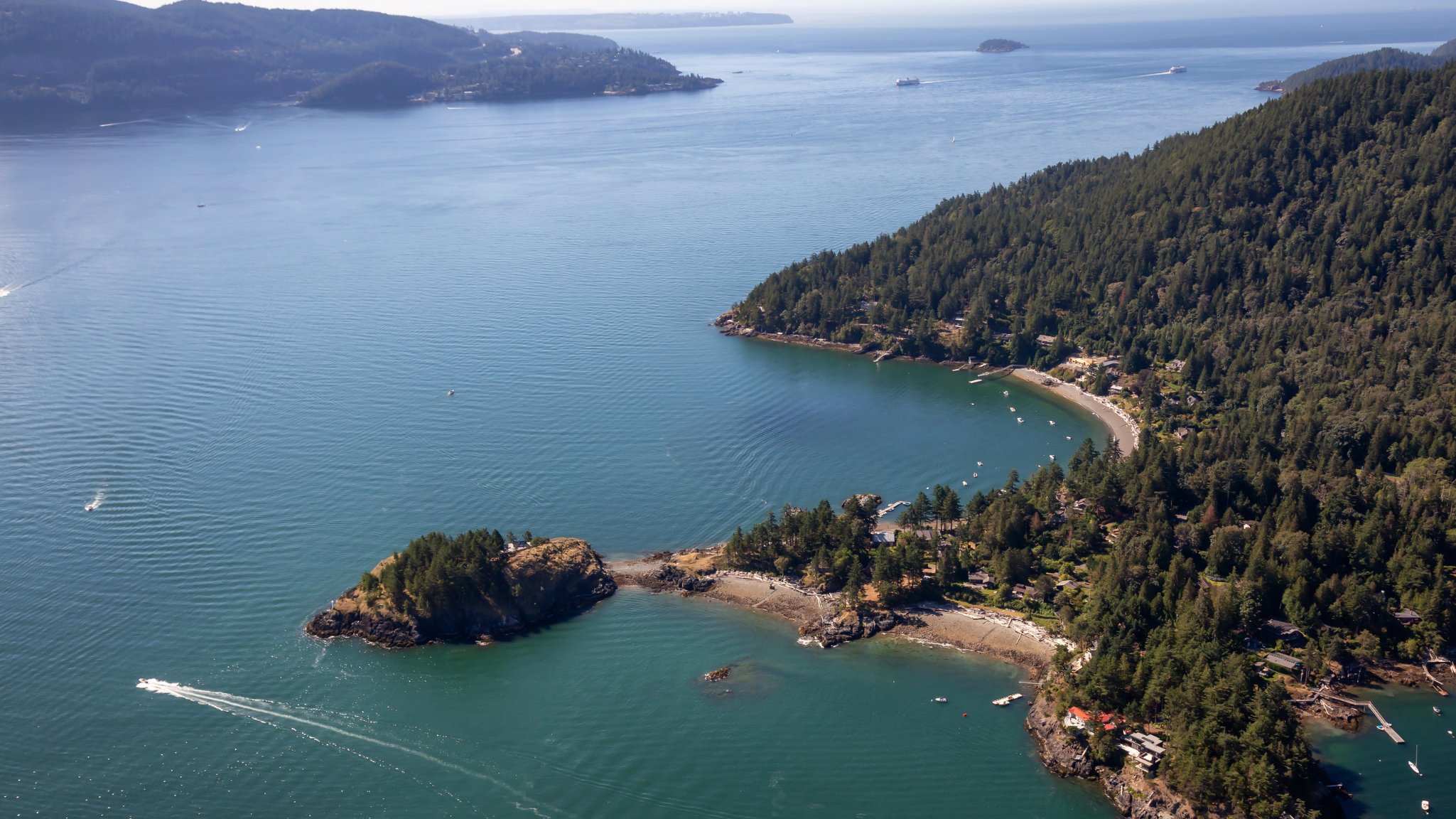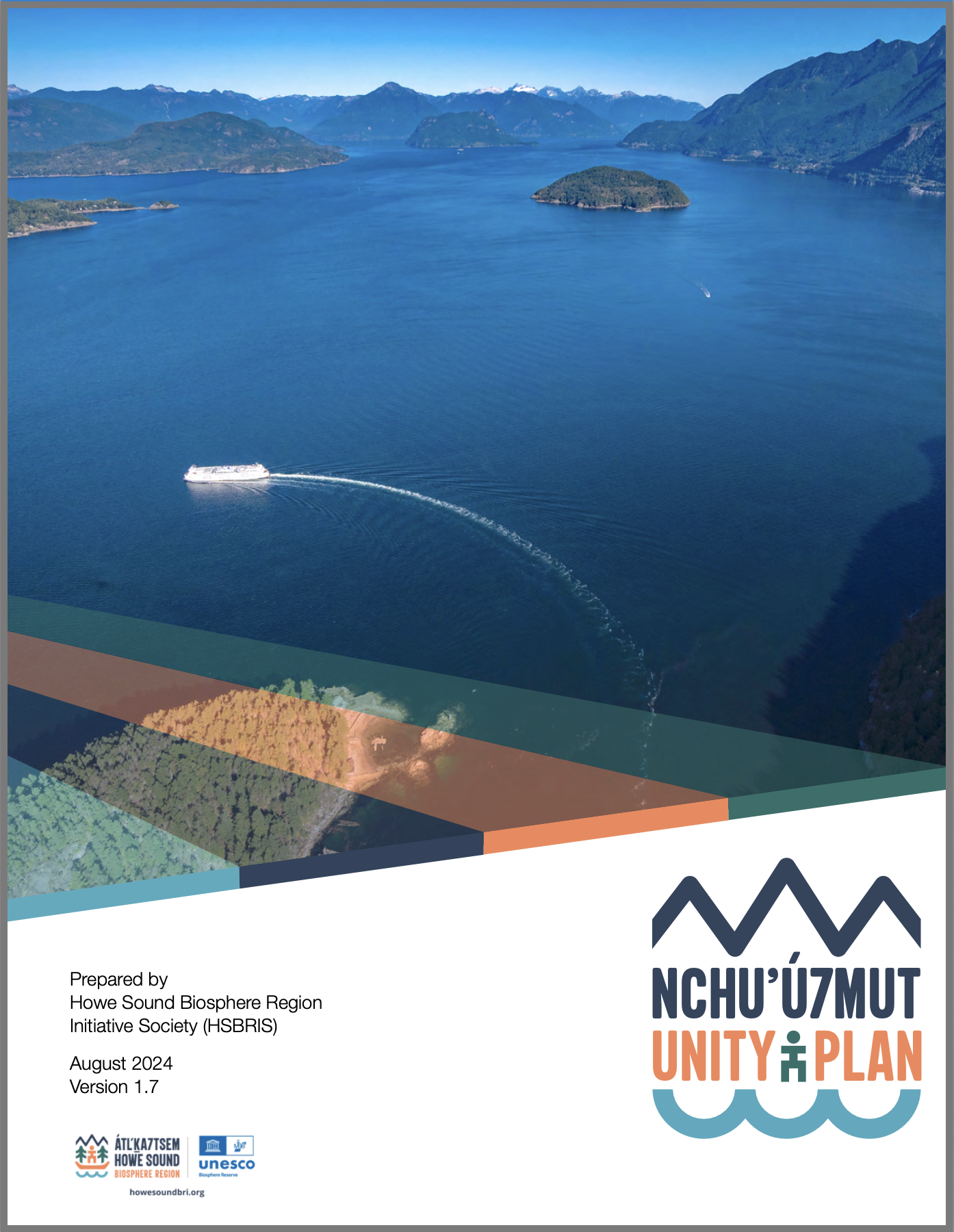
Managing the UNESCO Biosphere Region
Planning for the Next Ten Years
Photo by Edgar Bullon
Becoming Canada's 19th UNESCO Biosphere Reserve is both a prestigious honour and a great responsibility – one we embrace with perseverance and optimism.
As the Howe Sound Biosphere Region Initiative Society, we are responsible for managing the UNESCO designation for Átl'ḵa7tsem / Howe Sound Biosphere Region. As a biosphere region, our mandate is to support biodiversity conservation, facilitate education, research, and monitoring, and work with our broader community to ensure that as we grow, we do so in a sustainable manner. UNESCO will assess our progress in these areas every ten years, and these measures of success will be based on sound management and well-developed plans.
A Roadmap for the Future of Átl'ḵa7tsem / Howe Sound
We are required to have a comprehensive and unified plan for the Átl'ka7tsem/ Howe Sound Biosphere Region to guide how we move forward. This is our Nchu’ú7mut/Unity Plan, a land and marine use plan, created through multi-sectoral stakeholders, rightsholders, and local community members through a collaborative, participatory approach. We engaged people in our discussion paper for over two years and provided opportunities to contribute through workshops, forums, and our feedback form.
The Nchu’ú7mut/Unity Plan outlines our collective long-term vision for Átl'ka7tsem/ Howe Sound and a roadmap for how to get there. The contents of this plan include an organizational/governance structure for implementing the plan and an analysis of our strengths, weaknesses, opportunities, and threats (SWOT) (2022). The Nchu’ú7mut/Unity Plan sets out 21 goals and strategic priorities for the biosphere region. Measurable goals and priority projects help us achieve our vision. Performance indicators and benchmarks will help us assess our progress along the way.
We use the United Nations Sustainable Development Goals (SDGs) lens to guide our planning. These goals are focused on leaving no one behind by ending poverty, fighting inequality and addressing the urgency of climate change. The 17 SDGs have been embraced globally by governments, businesses, civil society and the general public. We all work together to build a brighter future for everyone.
Our plan is guided by members of the Howe Sound Roundtable, a multi-sectoral group of people from around the region. Members meet twice a year to provide advise and guidance on our planning. If you are interested in joining the Roundtable read more here.
If you would like to learn more about the Nchu’ú7mut/Unity Plan, or have a workshop, please contact us.
The Squamish Lillooet Regional District and the Sitka Foundation funding support toward this project.
Leave a lasting impact. Your gift supports stewardship, education, and ecological resilience for years/generations to come.
It’s a powerful way to protect the place you love - now and forever.


